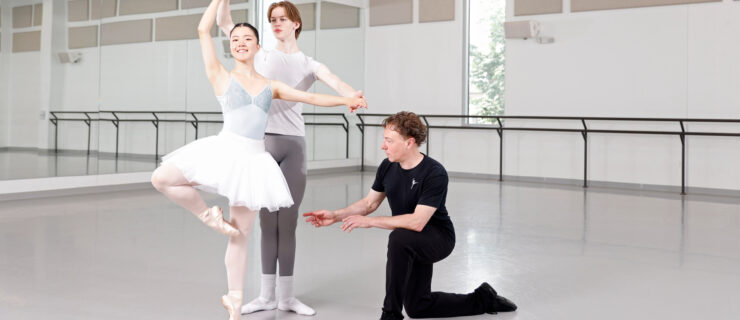Ask a Dance Dietitian: Is Willpower the Answer to Dealing With Sugar Cravings?
I’ve been eating dessert basically every day to hopefully reduce my cravings for it, but I haven’t had much luck. I feel like I’m constantly craving sugar, and it feels like I have no willpower. Help! —Carly
Thank you for this great question, Carly. Sugar cravings are a recurring concern for many dancers, especially with Valentine’s Day around the corner. More access to commonly deemed “indulgent” options can make it challenging to harness supposed “willpower” over the foods you may feel should be off-limits.
But there are major misconceptions around these two concepts: cravings and willpower. A craving is a strong desire for a specific food (like ice cream) or food group (like dessert). There are many reasons why one experiences cravings, including stress, disrupted sleep patterns and even the hormonal shifts experienced during menstruation. Cravings are also a response to restrictive eating habits.
In the context of food, willpower refers to a person’s ability to restrain themselves from any one type of food or food group. In essence, willpower sets the stage for food rules and, ultimately, lays the groundwork for cravings. When an imposed deficit exists—particularly for calorie-dense and carbohydrate-rich foods—the body responds in hopes to replenish the energy shortage. (Many desserts fit this nutritional profile!)
From your question, it sounds like you’ve begun to remove one major reason for cravings: restrictions. This is a reason to celebrate! Breaking free from restrictive food rules is not easy work, and regularly including sweets in your meal plan builds predictability and, eventually, trust. Your body knows that these key units of energy are readily available for replenishment.
But regarding the continuation of your cravings and believed lack in willpower, I suggest that you consider your mindset towards these foods. Labeling sweets as “bad” or “unhealthy,” or attempting to rely on willpower as a form of control over them, perpetuates the idea that they need to be avoided. This drives the cycle of restriction mentioned earlier. Viewing food through a more neutral lens will help, along with learning how to ensure you are adequately fueling your body as a dancer.
Have a question? Send it to registered dietitian nutritionist Rachel Fine at [email protected]. She’ll be answering questions on Pointe+ each month. Ask a Dance Dietitian responses are for informational purposes only and should not be a substitute for individual medical or mental health advice.







